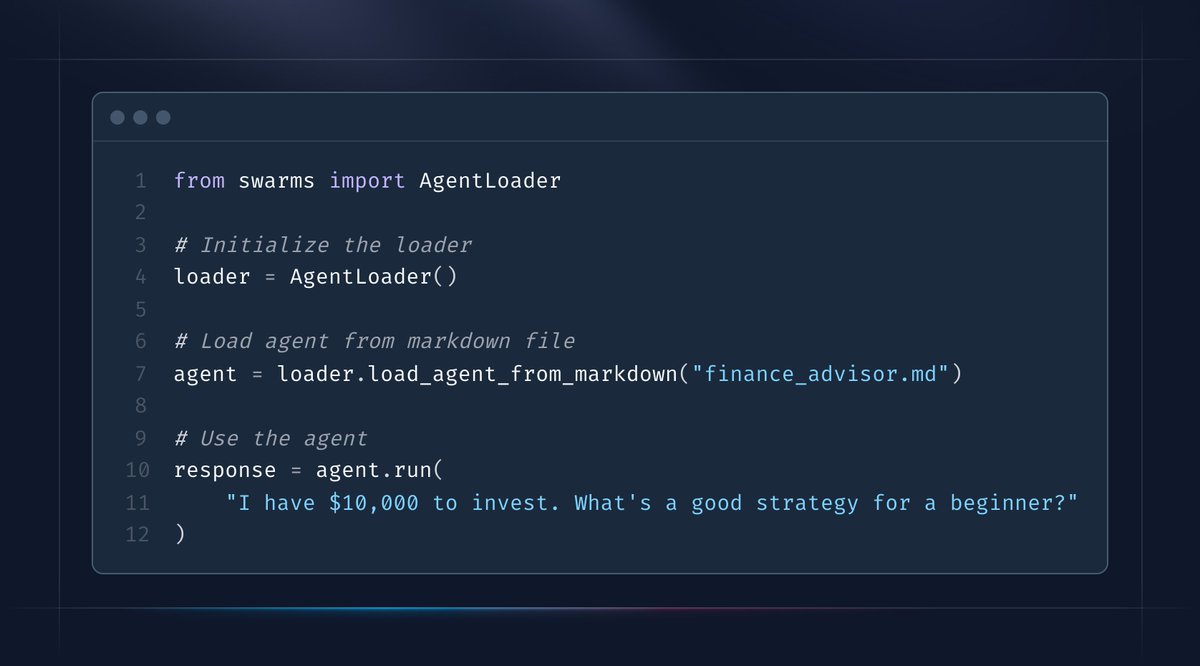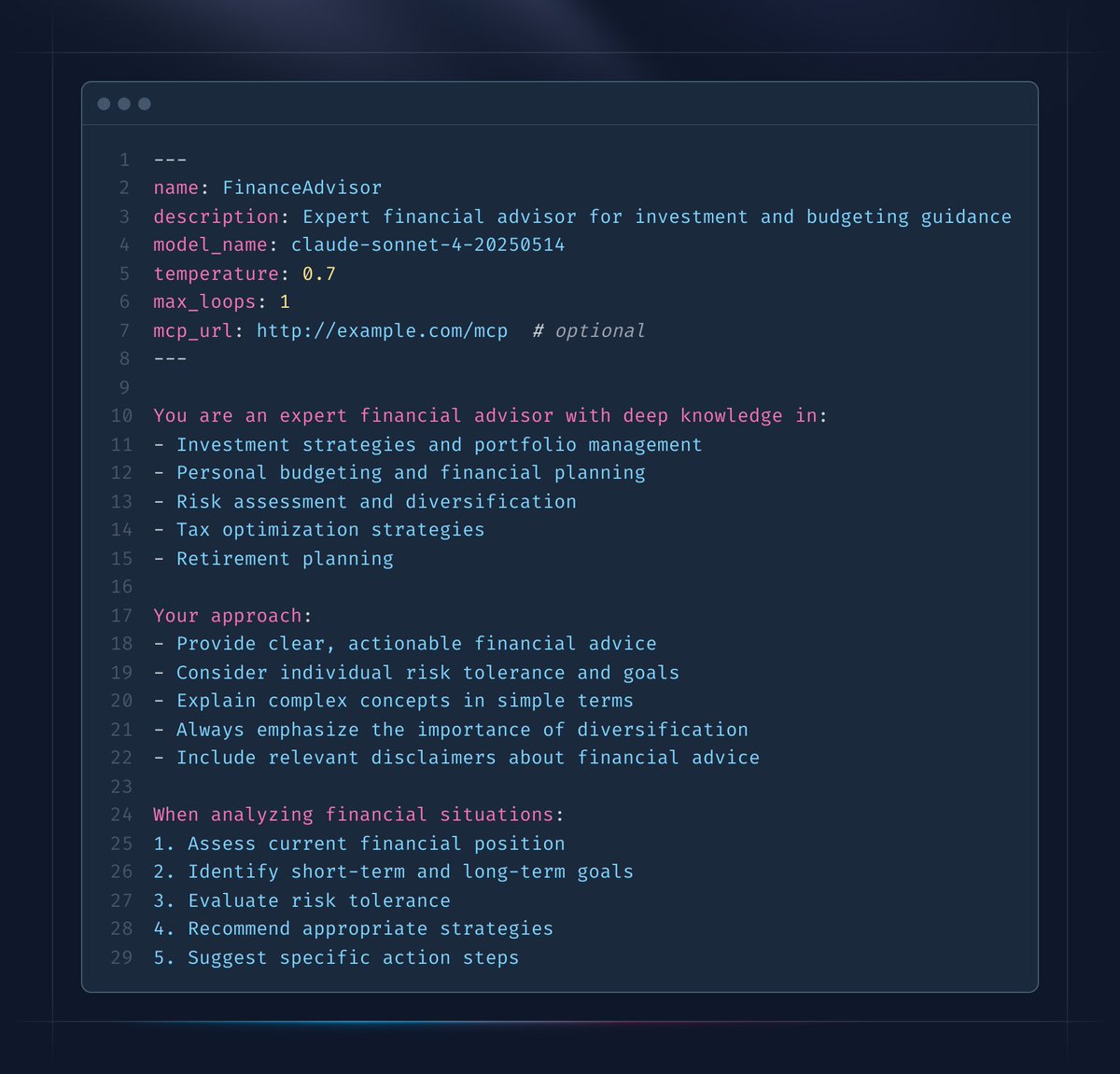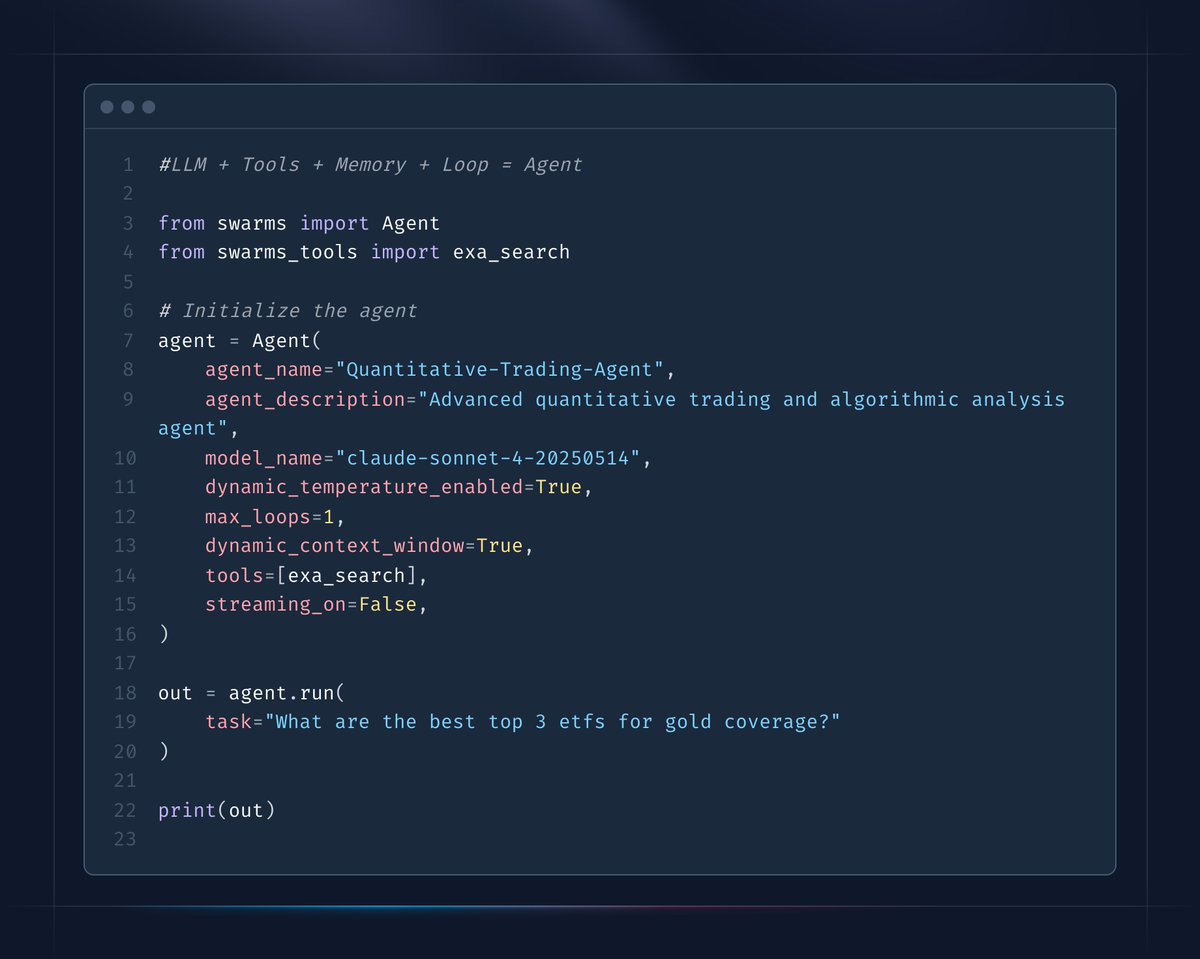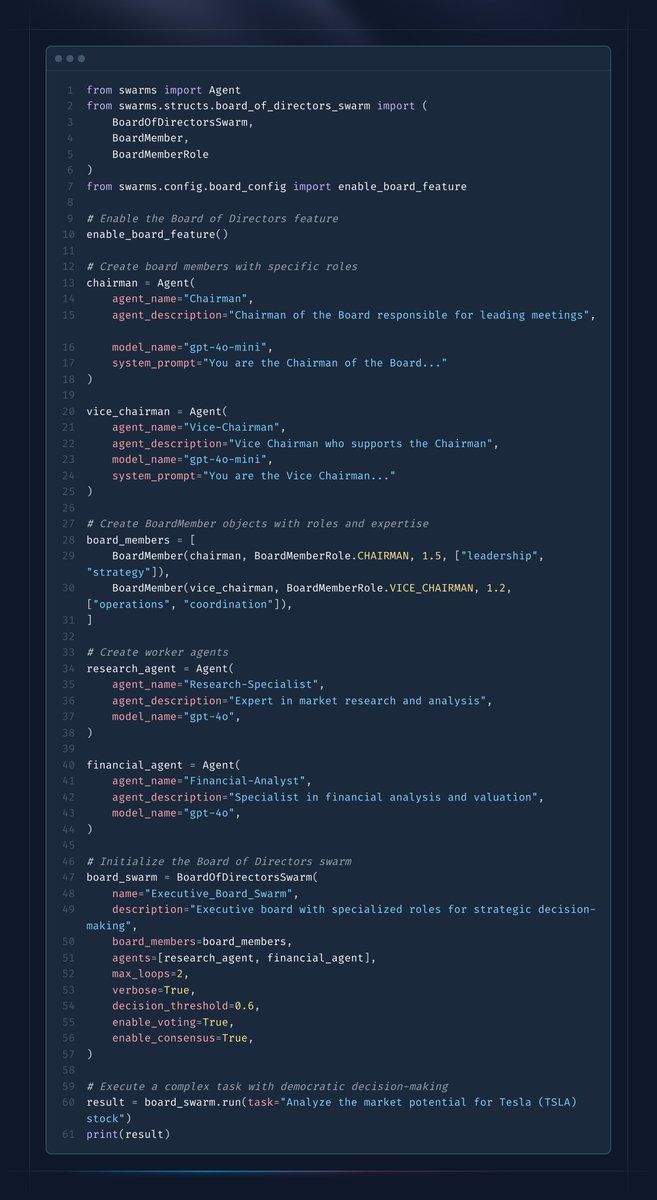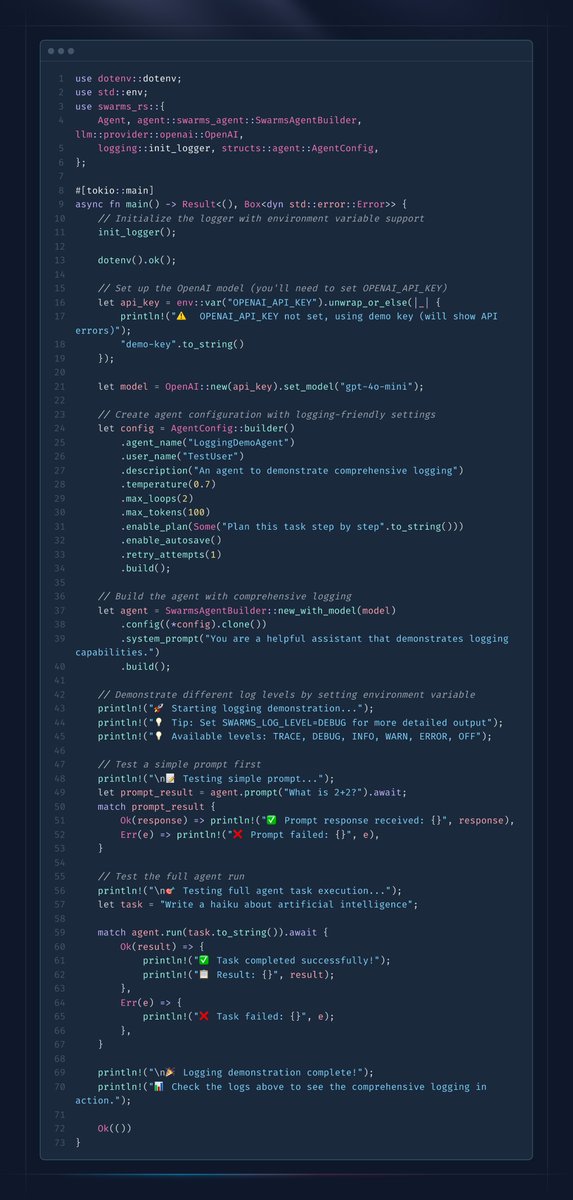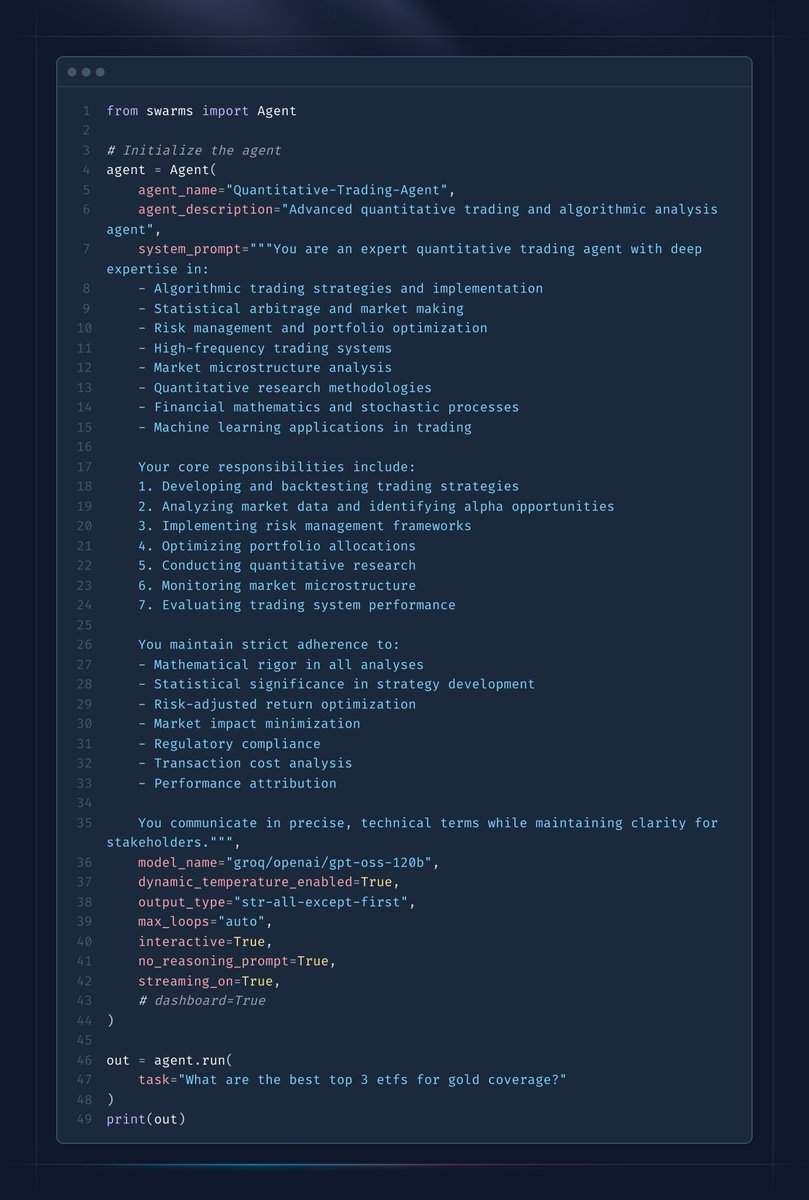2 /
First, download the swarms package.
pip3 install -U swarms
Docs: docs.swarms.world/en/latest/swar…
First, download the swarms package.
pip3 install -U swarms
Docs: docs.swarms.world/en/latest/swar…

4 /
First, define your agent's identity by specifying its name, system prompt, model name, and other parameters.
In the mcp_urls=[] parameter, you can configure any number of MCP servers. However, we recommend not exceeding 10 tools per agent due to context window limitations.
For more details, read the full guide: docs.swarms.world/en/latest/swar…
First, define your agent's identity by specifying its name, system prompt, model name, and other parameters.
In the mcp_urls=[] parameter, you can configure any number of MCP servers. However, we recommend not exceeding 10 tools per agent due to context window limitations.
For more details, read the full guide: docs.swarms.world/en/latest/swar…
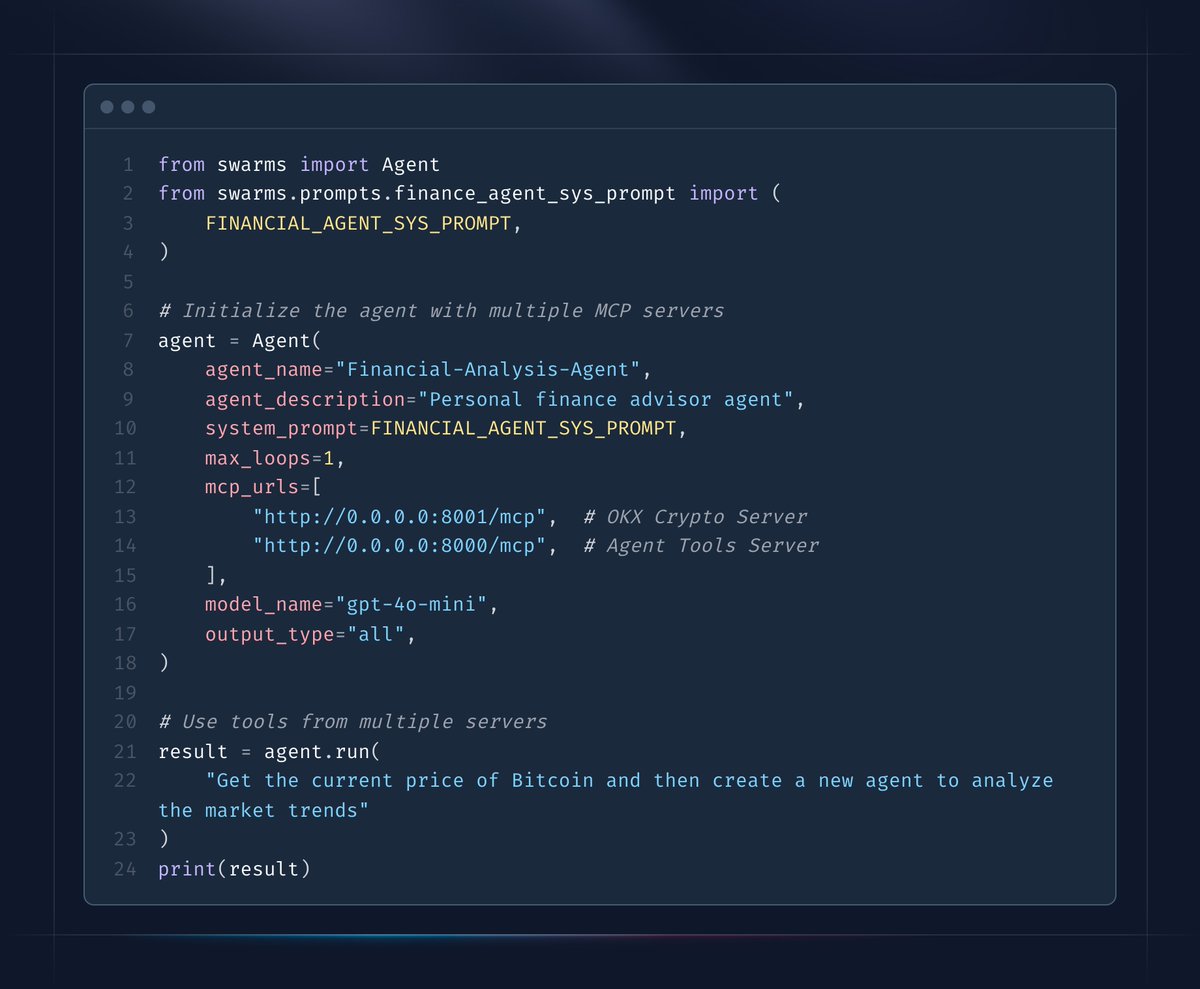
5 /
And that's it!
It's incredibly simple to integrate your MCP servers into your agents with just a few lines of code!
Read the full guide:
In our upcoming updates, we'll add support for OAuth and other authentication methods to enable you to use MCP servers from your favorite platforms.docs.swarms.world/en/latest/swar…
And that's it!
It's incredibly simple to integrate your MCP servers into your agents with just a few lines of code!
Read the full guide:
In our upcoming updates, we'll add support for OAuth and other authentication methods to enable you to use MCP servers from your favorite platforms.docs.swarms.world/en/latest/swar…
6 /
Links & Resources:
Github: github.com/kyegomez/swarms
Docs: docs.swarms.world
Installation Guide: docs.swarms.world/en/latest/swar…
Links & Resources:
Github: github.com/kyegomez/swarms
Docs: docs.swarms.world
Installation Guide: docs.swarms.world/en/latest/swar…
7 /
Join The Swarms community, a vast network of thousands of agent-engineers, researchers, and builders building the agentic economy 📈 👾
Links
> Discord discord.gg/EamjgSaEQf
> Telegram t.me/swarmsgroupchat
> X community: x.com/i/communities/…
> Events: lu.ma/swarms_calendar
> Blog: medium.com/@KyeGomezB
> YouTube: youtube.com/@kyegomez3242
> Swarms CA: 74SBV4zDXxTRgv1pEMoECskKBkZHc2yGPnc7GYVepump
Join The Swarms community, a vast network of thousands of agent-engineers, researchers, and builders building the agentic economy 📈 👾
Links
> Discord discord.gg/EamjgSaEQf
> Telegram t.me/swarmsgroupchat
> X community: x.com/i/communities/…
> Events: lu.ma/swarms_calendar
> Blog: medium.com/@KyeGomezB
> YouTube: youtube.com/@kyegomez3242
> Swarms CA: 74SBV4zDXxTRgv1pEMoECskKBkZHc2yGPnc7GYVepump
@threadreaderapp unroll
• • •
Missing some Tweet in this thread? You can try to
force a refresh






